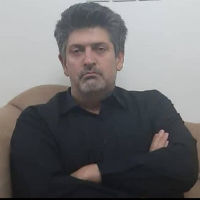Explanation of executive obligations of crisis management and passive defense in the city of thought with SWOT technique
Author(s):
Article Type:
Research/Original Article (دارای رتبه معتبر)
Abstract:
Aristotle, Mackinder ,hoffer,Spykman,mahan,kissinger,brzezinskicohen,huntington,fukuyama and Scientists who have worked on power, international relations, and geopolitics, they all agree that Iran is a strategic country ,That " s why he has always been under threat .the new city of importance in southwest of Tehran due to the existence of important and strategic centers in and around the city. These centers, in addition to the management of crisis management and non-factors management ,are at risk due to non-operating defense principles and crisis management ,and the threshold of resistance ,deterrence and swing are low ,the purpose of this study is practical. The variables investigated in it include the identification of strengths, in order to reduce losses resulting from probable risks, Enemy attacks are the lifting of defensive power ,the threshold of national resistance ,deterrence and planning or the city is defensive .the data collection method is mainly library and is used according to the type of research from field (studies of interview and observation .in this study, the SWOT technique has been used to explore the city's strengths and weak ness and to study the city system's compliance with non-factor defense principles and crisis management . which leads to the enforcement requirements of the strategic paradigm of crisis management and civil defense for the city of thought. The results show the lack of implementation and not respect of the principles of crisis management and non-factor defense in the city of thought.
Keywords:
Language:
Persian
Published:
Quarterly of Geography (Regional Planing), Volume:12 Issue: 3, 2022
Pages:
21 to 42
https://magiran.com/p2476148
مقالات دیگری از این نویسنده (گان)
-
Safety and Security in Urban spaces with Passive defense approach Case Study: Region 5 of Tehran Metropolitan
Journal of Urban Management Studies,



